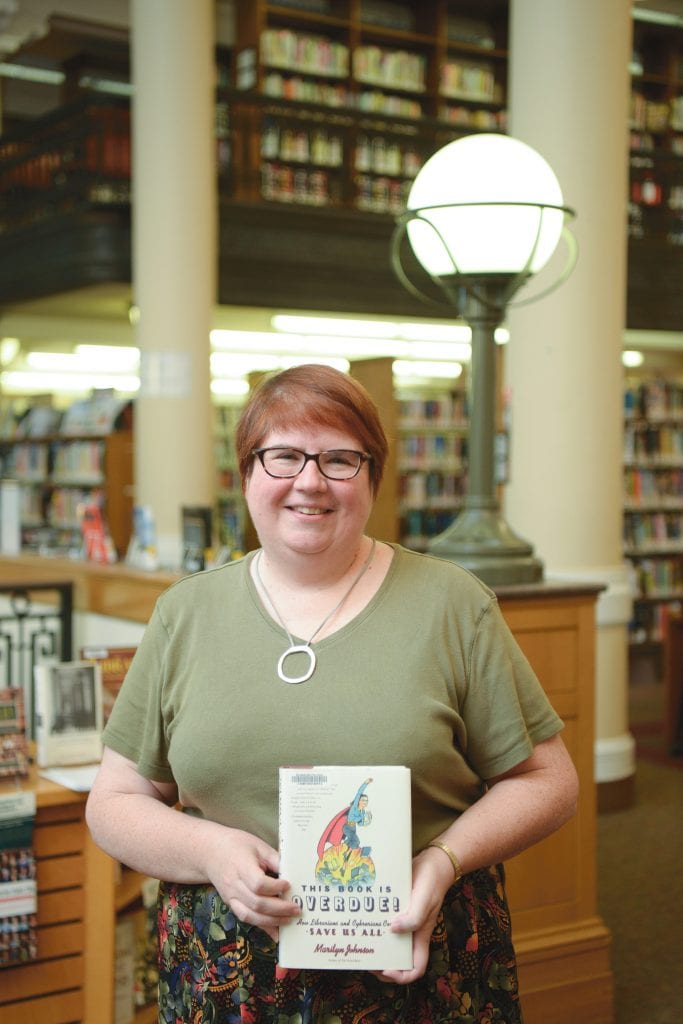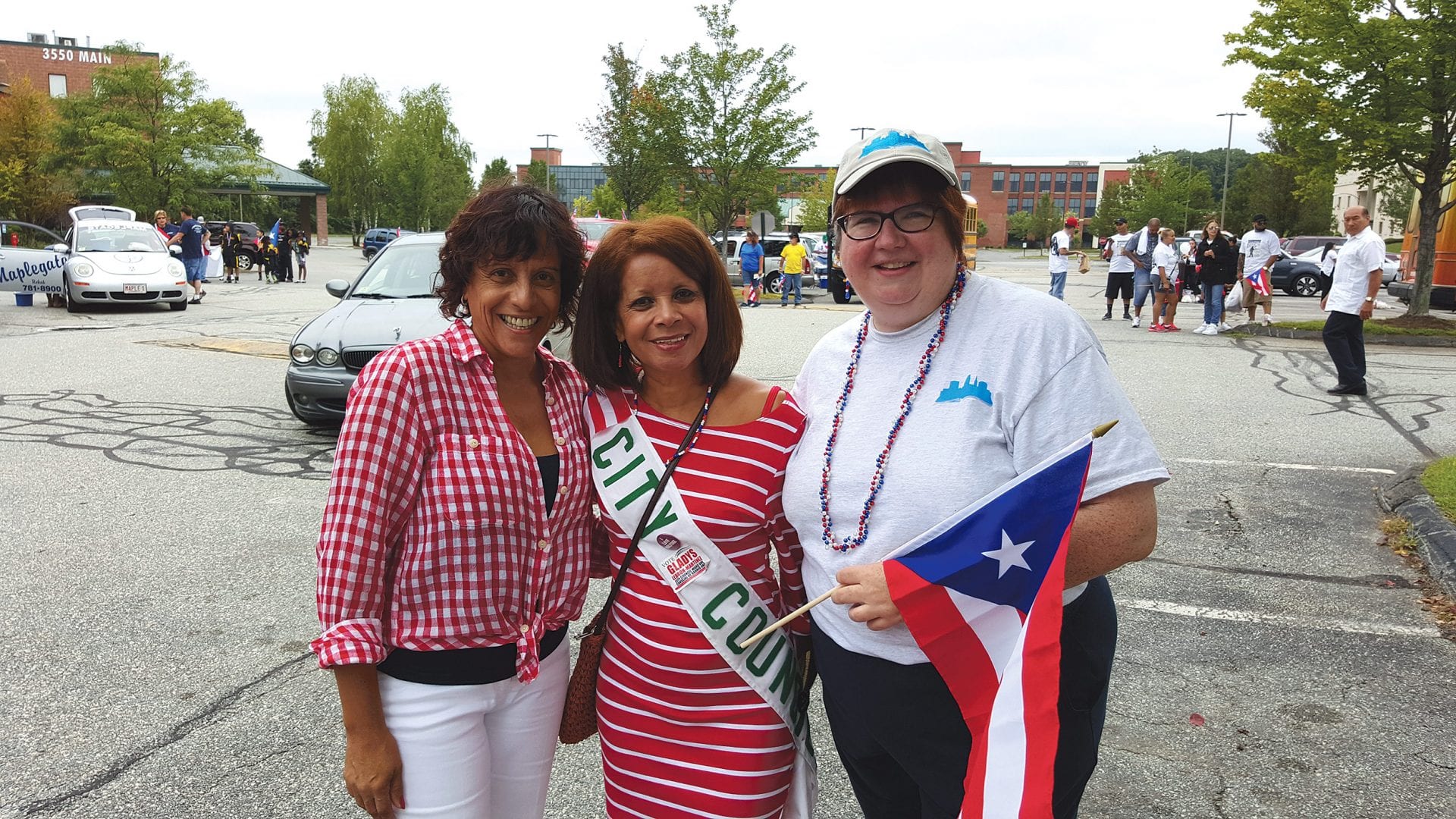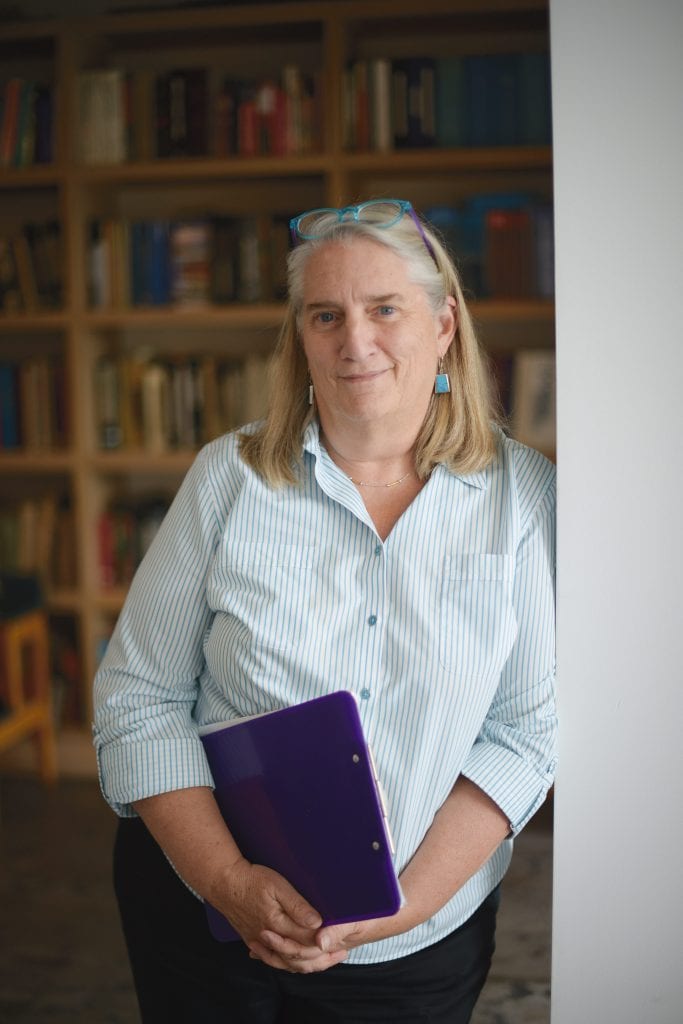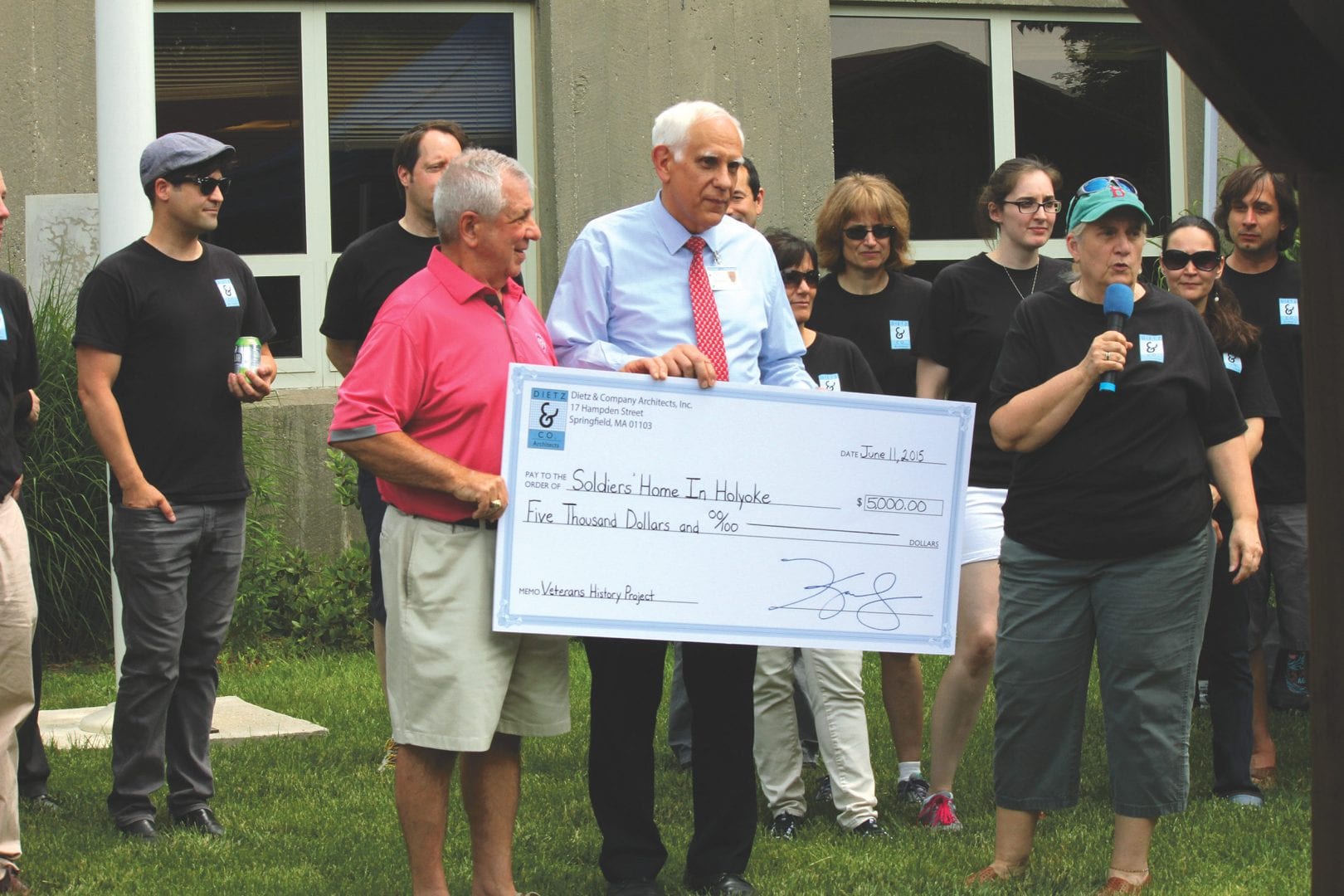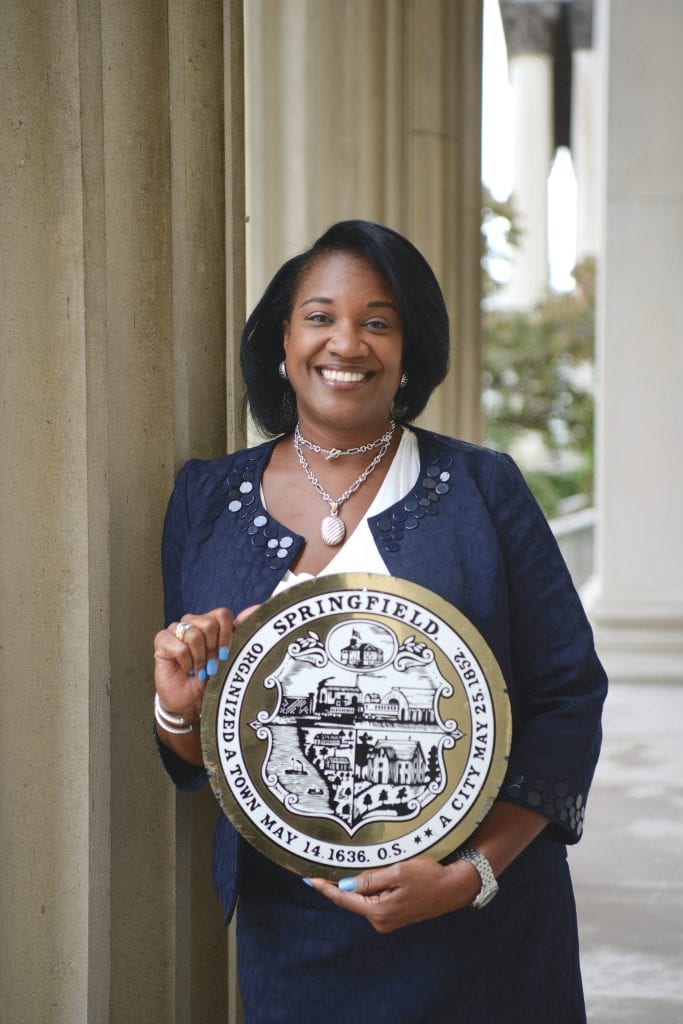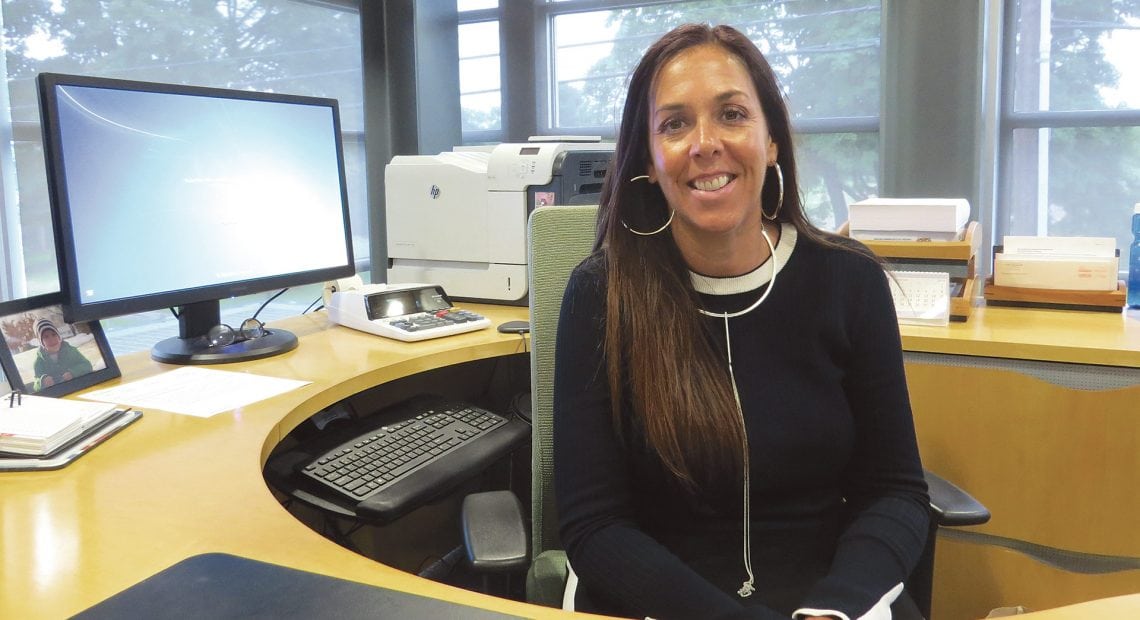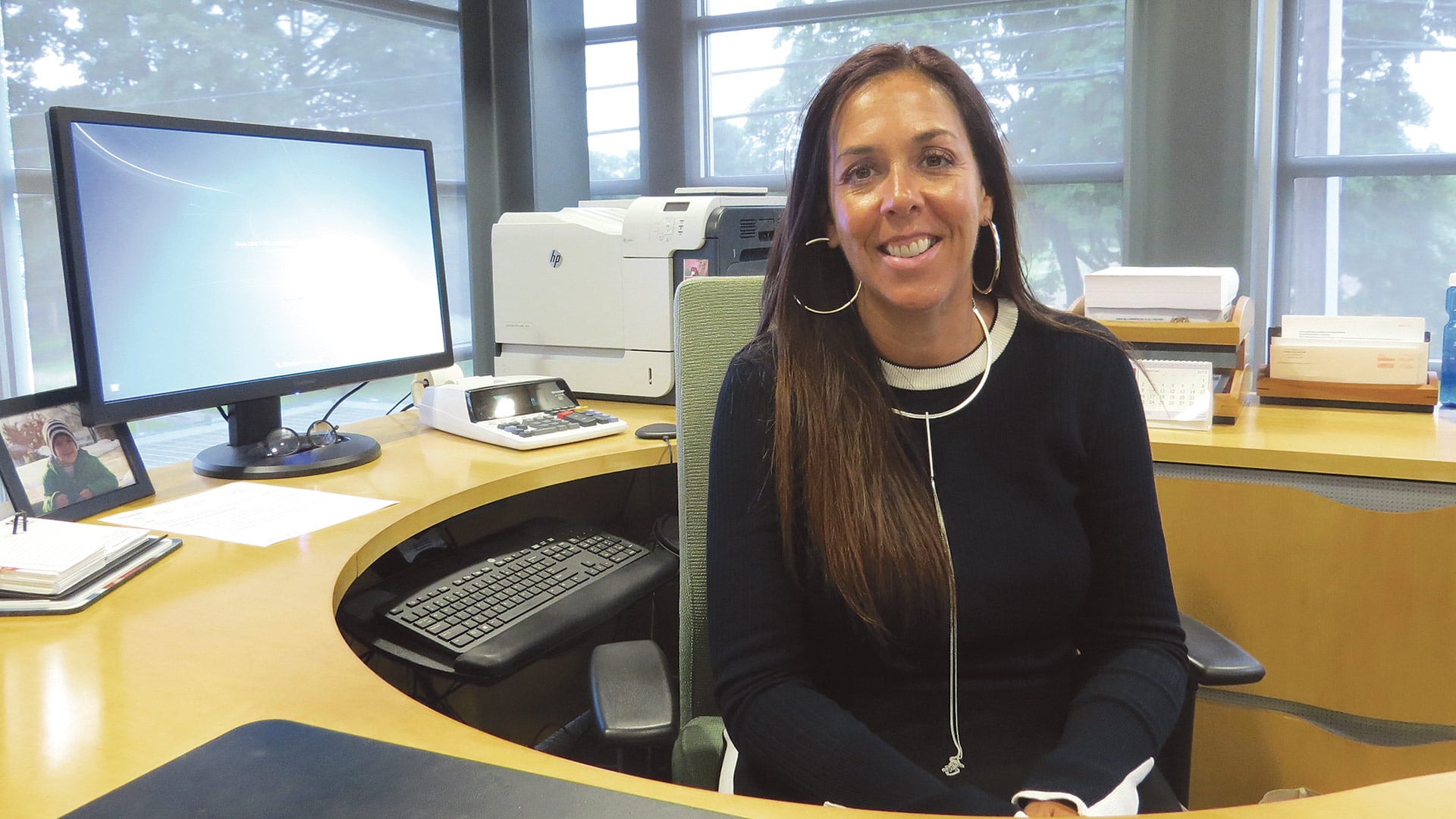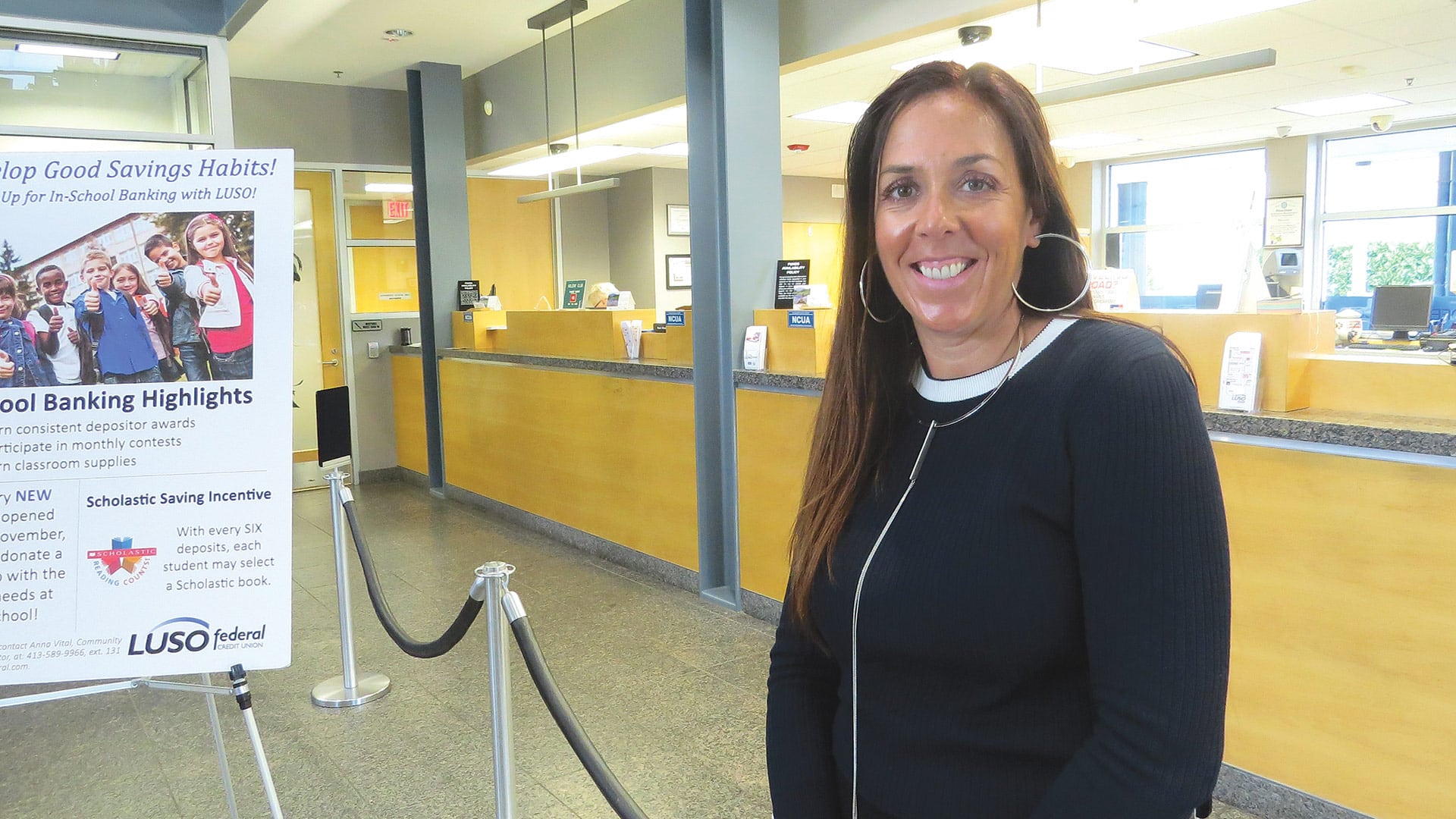Lending Perspective

President and CEO Tony Worden
Tony Worden has worked at several banks in his career, of various types and sizes, but there’s something about a small community bank that … well, just suits him.
For starters, “there’s less pressure,” said Worden, president and CEO of Greenfield Cooperative Bank (GCB). “I mean, we certainly have to grow, and we have to make money, but there’s less emphasis on that and more emphasis on relationships. I’m not trying to pat us on the back because I know Florence is like this, bankESB is like this, Greenfield Savings, too — we all need to make money, we need to grow, but we also get how important we are to the communities that we serve.
“There are loans we make that, at a previous bank, we never would have made,” he went on. “They just would have said, ‘no, we’re not doing that.’ But community banks find ways to stretch to get people’s mortgages done, and even on commercial loans. As a community bank, we have to think about how we’re serving our community, and bigger banks worry less about that. It’s easier for them to turn loans down because they’re not as involved.”
Worden knows a lot about commercial lending after working in that realm for the vast majority of his career before former GCB President and CEO Michael Tucker persuaded him, in 2019, to pursue that role as Tucker prepared to retire. Worden knew he’d have a steep learning curve in areas ranging from finance to IT to human resources — but he embraced the challenge.
“My thought was, someday, if I play my cards right, maybe I’ll get a chance to be the senior lender somewhere. And I got to be that here. It was not part of my grand plan to be president.”
“A lot of people get into this business, and their dream or goal is to become president of a bank. But I never really thought about that. My thought was, someday, if I play my cards right, maybe I’ll get a chance to be the senior lender somewhere. And I got to be that here,” he said. “It was not part of my grand plan to be president.”
But Tucker was convinced Worden was the right candidate to put forth internally, and the board eventually chose him over two external candidates. Worden, a longtime senior commercial loan officer, initially worked alongside Tucker as chief operating officer through 2020, then took over as president at the start of 2021; Tucker stayed in the CEO role until the start of 2022, when he retired and passed that mantle to Worden as well.
The long transition period working alongside Tucker turned out to be a blessing in more than one way. Not only was Worden learning the ins and outs of a much broader job than his previous career in commercial lending, but the emergence of the pandemic threw a major wrench into the banking world.
“The transition got stunted a little by the pandemic,” he recalled. “Obviously, I was excited when I accepted the job, and we knew COVID was a thing that was happening, but no one knew exactly what it was going to do. And literally within a week, my excitement ended because it was, ‘OK, now we have survive this.’”

While nine of its 10 branches are in Franklin and Hampshire counties, including its Greenfield headquarters (pictured), GCB has been making inroads into Hampden County as well.
Worden said bank leaders will be telling stories for decades about the adventure of PPP loans and everything else they had to do to help customers navigate that whitewater, but they are gratifying stories to tell.
“It’s amazing, in hindsight, to think about what all the banks accomplished. There were certainly technological hurdles because the SBA was not set up to be doing this volume.”
But in the years that followed, Worden has become accustomed to many other challenges, from a shifting rate environment — and its impact on lending — to the continued evolution of digital banking platforms, to Greenfield Co-op’s own growth trajectory.
“As a community bank, we have a responsibility to serve our customers’ needs as fully as we possibly can,” he told BusinessWest. “So we all stretch a little bit more to get loans done, to get projects done.”
Steady Growth
Greenfield Cooperative Bank has grown in numerous ways over the past decade, most notably by merging with Northampton Cooperative Bank in 2015, which increased its branch total from five to nine; a tenth branch opened in South Hadley in 2020, the first outside of Franklin or Hampshire county.
At the time of the merger, Greenfield Co-op boasted roughly $350 million in assets, and Northampton brought roughly $150 million, to create a $500 million bank.
“Right now, we’re just under $800 million in total,” Worden said. “So, in a decade, we’ve had about $300 million worth of growth, which, obviously, for a bigger bank or a publicly traded bank, wouldn’t be acceptable. But we don’t have stockholders, so we can grow sensibly.”
“The real growth, from a demographic perspective, is in Hampden County. And with all the mergers and acquisitions, there are fewer banks in Hampden County than there used to be.”
That said, he views Hampden County as a big part of GCB’s future, and the South Hadley branch as a jumping-off point to do more business in that region. In fact, many of the bank’s lenders have worked at Springfield-area institutions in the past and have maintained relationships there.
“If you look at the demographics, Hampden County is growing. Franklin County is not; it’s actually retracting. Hampshire County’s growing a little bit, but the real growth, from a demographic perspective, is in Hampden County. And with all the mergers and acquisitions, there are fewer banks in Hampden County than there used to be.
“So we see opportunity,” he went on. “We’ve had some success on the commercial side, and this past winter, we hired a mortgage originator from a local competitor who’s based out of Holyoke and knows that market, and we’re making a push to start doing some residential mortgages in all of Hampden County. But our focus right now is Holyoke, Chicopee, and Springfield because we feel like we can handle that through a branch in South Hadley, which isn’t technically in Hampden County, but it’s not that far away. So we’re taking tentative steps to be more of a presence down there.”

Greenfield Cooperative Bank partners with many community organizations, such as Montague Public Libraries (pictured) for programs like its bilingual children’s music and movement program.
That said, when Worden joined the commercial lending team at GCB 15 years ago, the bank had $29 million in commercial loans; that number is now $260 million, and the bank employs more lenders, credit analysts, and administrative staff.
“But we’ve also seen some significant payoffs of our loans — not because they’ve gone and refinanced somewhere else, but because they sold their properties when the market got so hot,” he noted.
At the same time, “I think the rising rate environment has made people shyer about going out and pursuing things because, again, no one wants to finance something at the top of the market and have the rates start to go down the day after they do it. So I think what we’ve seen is people kind of sitting and waiting: ‘is the economy going to tank or not?’
“As time has gone on, I think more people are buying into this idea that there could be a soft landing,” he went on. “But I think it would help to see the rates drop because I think that would get people active again. There’s a lot of wait and see at this point.”
That said, a large swath of the customer base never lived through really high rates.
“When I first started, I was a junior commercial credit analyst at Vermont National Bank up in Brattleboro,” Worden said. “And people were saying, ‘you know, if prime would just get down to 10%, that would be perfect.’ And then we were so low for so long that people started to think that was normal.”
He recently watched a recording of a Red Sox game from the 1980s, complete with commercials, and one in particular made him laugh. “It was a car commercial, and it said, ‘low, 11.99% financing for well-qualified buyers.’ Today, people would see that, and their heads would explode.”
Historical perspective isn’t the only thing separating younger from older bank customers — they have different banking habits as well, as Millennials and Gen Z grew up with technolology and are more apt to eschew physical branches.
“They go in as little as possible. They want to do as much remotely and through their phone as they possibly can,” Worden said. “That’s a new reality, making sure we have the technology and the channels for them to bank the way they want to bank.”
But there will always be a need for a physical presence and face-to-face interactions, he added, which is why banks continue to expand geographically.
“For a decade or so before the pandemic, if you went to any banking-industry events, they said, ‘get rid of your branches, get rid of the bricks and mortar; they’re expensive. The fintechs are eating your lunch because they don’t have those costs. They’re not paying real-estate taxes. They’re not paying for AC. They’re not paying for the lights.’ But now, we’re hearing, ‘lean into your branch network because that’s your advantage over the fintechs. The fintechs wish they had a building on the corner that people could walk into.’
“If everything is going well for you as a customer, maybe you don’t need to talk to somebody face-to-face. But as soon as something goes sideways, it’s nice to know you can walk into a building and talk to somebody face-to-face and deal with them,” he went on. “We, as a bank and as an industry, have to do a better job explaining to people what the value is of having someone local working with you.”
Different Kind of Dream
That local face and relationship banking may be even more important at a time when mergers are creating ever-larger institutions — and fewer of them, Worden noted.
“Some people say to me, ‘you must be happy when you see these bank mergers because it’s one less piece of competition for you.’ But no — I think it’s a shame that local options are going away.
At a Massachusetts Bankers Assoc. meeting he attended last fall, attendees were told there are half as many banks in Massachusetts as there were 20 years ago, and it’s estimated that, over the next decade, that figure could be halved again. “I left there thinking, ‘we have to focus on what it will take for us to make sure we’re one of those banks that survive.”
But it’s a challenge he’ll enjoy, even though it’s not one he dreamed about taking on earlier in his career.
“When it was announced that I got this job, people would come up to me and say, ‘you got your dream job.’ And I’d say, ‘no, actually, I gave up my dream job for this job.’ If someone offers you the chance to be the president of a bank, you take the job. But what’s been fun is focusing on other parts of the bank than commercial lending.”
One of those is philanthropy, and Worden appreciates being in a place where community giving decisions are made locally, rather than regionally or nationally, as is the case at larger banks.
“The decisions we make about where we’re going to give our money happen right here in this building, for the most part,” he noted. “We certainly upped our giving during COVID, and then we never went back down to the historical level — not that it was low before.”
Overall, Worden said, GCB is a relatively uncomplicated bank to run. “We’re very vanilla. I think my senior staff gets sick of hearing me say that, but I say it as a good thing. We’re not in all kinds of weird things. We stick to what we know how to do, and we do them well.”
While Greenfield Co-op isn’t among the region’s largest banks in terms of assets, it’s well on its way to $1 billion, and Worden is looking forward to that milestone.
“Things will change a little bit; there’s more regulation,” he told BusinessWest. “But it’s gratifying to see the growth and to know I played a small part in that. A lot of the reason for the success was Mike Tucker. He did a great job for 20 years; he got the ball rolling. I’m just trying to keep the thing moving down the road.”




